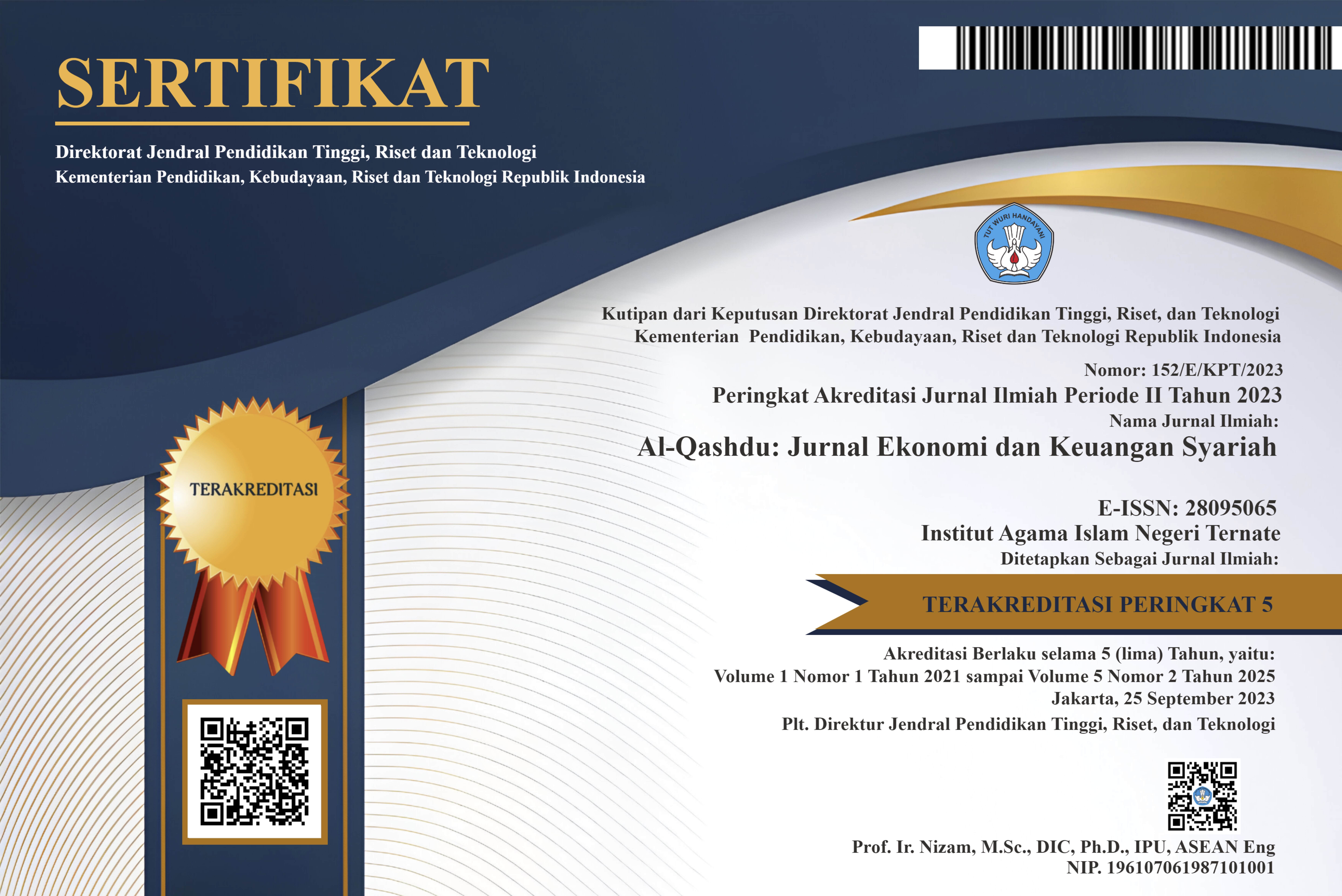ANALISIS PERBEDAAN PARADIGMA PEMBANGUNAN EKONOMI KONVENSIONAL DENGAN EKONOMI ISLAM
Abstract
This research has the title analysis of the sharia economic development paradigm and conventional economic development. This research uses a library study of the differences between the sharia economic development paradigm and conventional economics. The method used is the descriptive method, where this analytical method examines a group of people, objects, conditions, events in the present. Economics studies behavior that has no boundaries which originates from mutually agreed rules, while sharia economics is limited by sharia provisions which are sourced only from the Koran and Hadith. a paradigm that has an important role in the concept and implementation of development economics. Conventional economics only pays attention to changes that occur in economic variables, while sharia economics ignores economic variables and avoids things that cannot be justified in sharia.
Keywords: Conventional Economics; Islamic Economics; Paradigm
Full Text:
PDFReferences
Aedi, H. (2011). Teori dan aplikasi ekonomi pembangunan perspektif Islam: sebuah studi komparasi. Yogyakarta: Graha Ilmu.
Amir, A. (2021). Ekonomi Pembangunan Islam. WIDA Publishing. Diambil kembali dari https://books.google.co.id/books/about/Ekonomi_Pembangunan_Islam.html?id=IuBBEAAAQBAJ&redir_esc=y
Chapra, M. U. (2000). Islam Dan Tantangan Ekonomi. Jakarta: Gema Insani Press.
Khoiry, K. A., Hafiz, M. S., & Ariansyah, N. R. (2023). Perbandingan Antara Sistem Ekonomi Islam dan Ekonomi Konvensional: Kelebihan dan Kekurangan. Islamic Education, 1 (3), hlm. 446-455.
Mulyadi, S. (2023). Pengaruh Korupsi Dan Politik Terhadap Pertumbuhan Ekonomi Di Indonesia Perspektif Islam. Al-Qashdu: Jurnal Ekonomi Dan Keuangan Syariah, 3(1), 69–83.
Quilim, C. A., & Juleng, J. (2022). Peran Bumdes Simpan Pinjam Untuk Pemberdayaan Ekonomi Masyarakat Di Desa Wayabula Tinjauan Ekonomi Islam. Al-Qashdu: Jurnal Ekonomi Dan Keuangan Syariah, 1(1), 43–52.
Ridha, N. (2017, Januari-Juni). Proses Penelitian, Masalah, Variabel, dan Paradigma Penelitian. Jurnal Hikmah, 14 (1), hlm. 62-70. Diambil kembali dari https://e-jurnal.staisumatera-medan.ac.id/index.php/hikmah/article/view/18/15
Siregar, E. Y. (2022). Paradigma Pembangunan Ekonomi Konvensional dan Pembangunan Ekonomi Islam. Islamic Business and Finance, 3 (2), hlm. 126-140.
DOI: http://dx.doi.org/10.46339/al-qashdu.v3i2.1133
Refbacks
- There are currently no refbacks.

This work is licensed under a Creative Commons Attribution-NonCommercial-ShareAlike 4.0 International License.

This work is licensed under a Creative Commons Attribution-NonCommercial-ShareAlike 4.0 International License.
Al-Qashdu: Jurnal Ekonomi dan Keuangan Syariah
Published by Faculty of Islamic Economics and Business, Institut Agama Islam Negeri (IAIN) Ternate
Jl. Lumba-lumba, Ternate City, North Maluku, Indonesia, 97727
Website: https://www.iain-ternate.ac.id/
Phone: +6281241674617
Email: [email protected]

